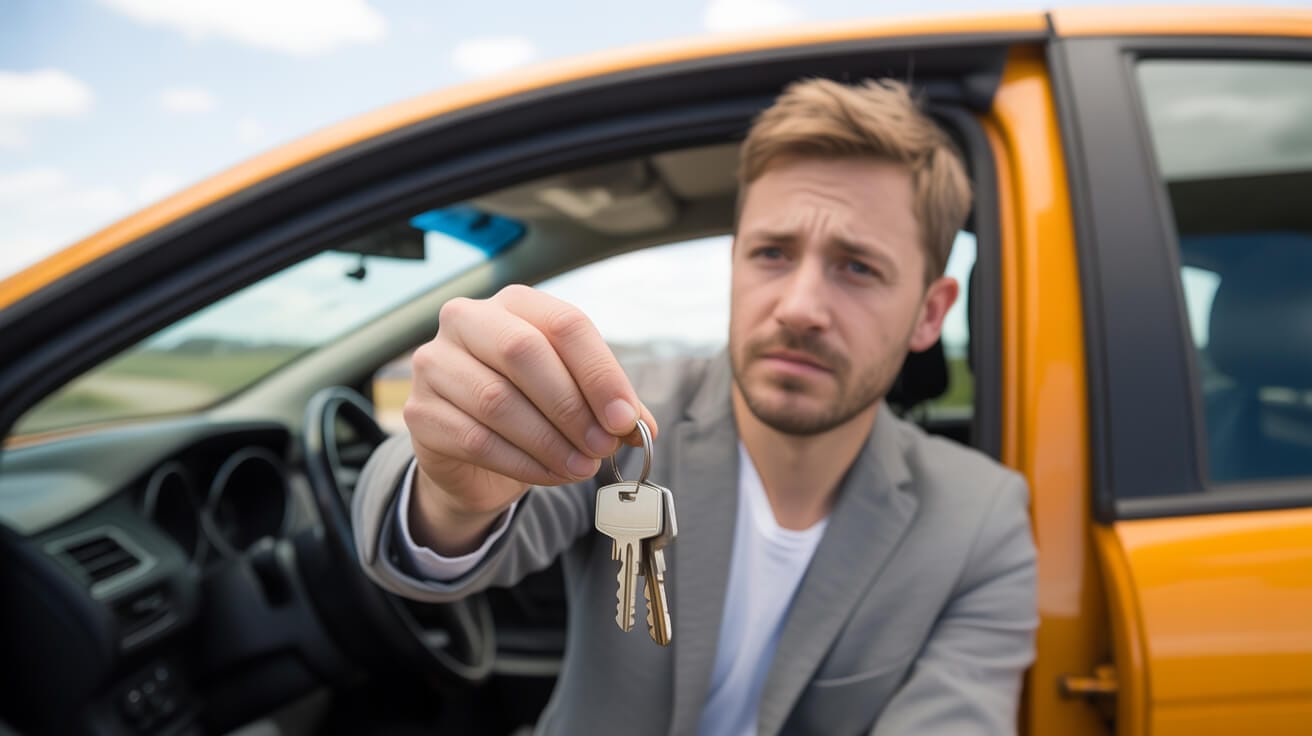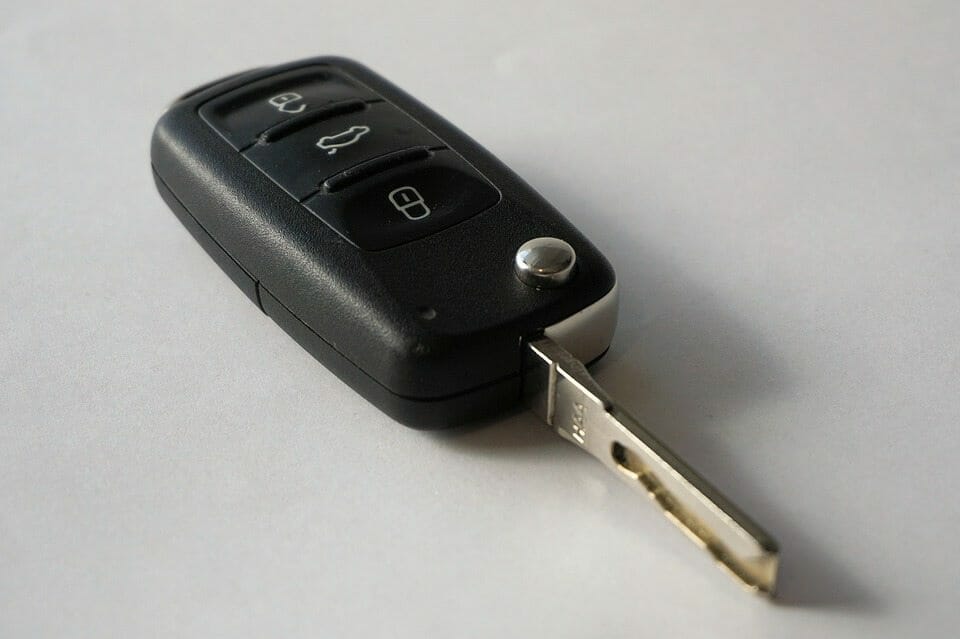How Do Modern UK Car Keys Work—and Why Does It Matter for You?
Most cars in the UK today don’t just rely on a metal key—they expect a digital handshake each time you start the engine. This matters because using, losing, or replacing a key now means thinking about more than just hardware. A locksmith can programme the high-security chip inside your car key, but only if you understand what’s at stake and why it’s crucial to get it right.
Understanding your key’s technology is the difference between smooth driving and frustrating lockouts. Every key after the mid-1990s uses a transponder (a tiny microchip) hidden in the plastic head. This chip speaks directly to your car’s immobiliser, which quickly checks if the code matches before it allows the engine to fire up.
Understanding how your key talks to your car is your first layer of real protection.
Real security comes from this dance between your key and the engine’s brain, not just the metal blade. This digital handshake prevents thieves from hot-wiring vehicles and affects whether insurance will pay out if a loss occurs. The transponder conversation is silent but critical—if the car doesn’t recognise the chip, you’re not going anywhere.
What Is a Transponder Key, in Plain English?
A transponder key isn’t just an old-fashioned blade. Inside, a microchip holds a code unique to your car. When you put the key in the ignition or bring it near the start button, your vehicle asks for a digital password. If the codes match, the immobiliser releases and you can drive. If not, the car stays locked down. This one feature stops casual theft cold.
Short version: If your key’s chip isn’t seen, your car won’t start. It’s that simple.
Why Was This Change Made?
Insurance groups and automakers wanted to kill opportunistic theft. The solution: an electronic system that links each key to a specific car. That’s why almost every UK vehicle from 1995 onward requires a coded key—and only a paired, programmed key will work. If you ever need a spare, a replacement, or a fix after losing yours, you’re in the world of immobiliser security—and you want someone who speaks that language.
What Is a Transponder Key and Why Does It Matter for UK Drivers?
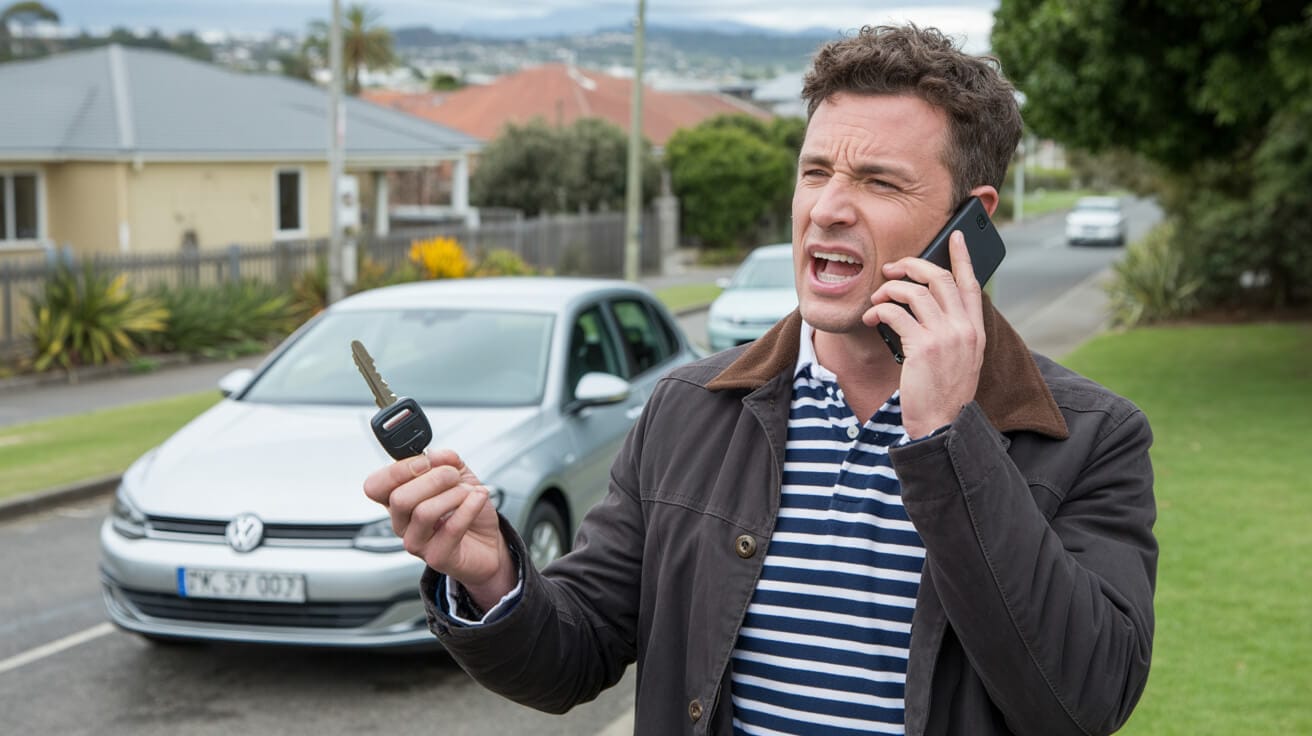
Transponder keys act as the ultimate gatekeeper for your car. They do far more than unlock the doors; they prove your right to start the engine. Without the right chip, a cut key is just a piece of metal.
Your peace of mind on the road hangs on a handshake between chip and car.
Every transponder chip carries a digital identity. The vehicle asks for this secret code every single time you start up. If you grab a spare key and it turns the lock but won’t start the car, chances are it’s missing the programmed chip. This isn’t just an annoyance—it can be a budget blow if you’re stuck, especially after hours or on a trip.
How Do You Know If Your Transponder Is Working?
The quickest test? See if your spare key both unlocks and starts the car. If the engine turns over and runs, your chip and immobiliser are playing nice. If not, you need a professional diagnosis—sometimes the chip is unprogrammed, sometimes damaged, sometimes a previous owner swapped locks or immobilisers. Skilled locksmiths use advanced scan tools to confirm where exactly the chain breaks.
Can Cheap Duplicates or Generic Keys Cause Headaches?
Absolutely. Online bargains or car-boot remotes may look the part but often lack the essential programmed chip. You might get a key that unlocks the doors but leaves you stranded at the next start. Always insist on written proof—these days, reputable providers give you digital logs that tie your new key directly to your car’s ID. If a spare can’t start your car, it isn’t a true backup.
A good rule: A spare key that only unlocks doors could let you down far from home—only trust chips that have been tested and logged.
Dealer vs. Locksmith: Who’s Better for Programming UK Car Keys?

Both main dealers and locksmiths can programme transponder keys, but their service, cost, and speed differ. Knowing the nuances means less stress and more control when trouble strikes.
The right credentials and a digital paper trail beat big brands and glossy adverts every time.
Dealers are tied to specific car brands and can access the latest codes and software for their make. This makes them the sole route for many very new or app-based digital keys, and for warranty work. However, dealers often require days, a workshop visit, and higher fees.
Locksmiths, like Autolocks Ltd, cover multiple brands, work at the roadside, and can usually help faster. Many are accredited by national locksmith associations or comply with strict programming protocols. They typically offer digital, time-stamped logs and usually deliver at a lower fee.
What Do Costs, Speed, and Results Look Like?
Before choosing, compare these factors:
| Service Factor | Locksmith | Main Dealer |
|---|---|---|
| Coverage | Most makes, on-site | Brand only, may need booking |
| Speed | 1–2 hours typical | 2–5 days, workshop required |
| Documentation | Digital, time-stamped | Paper only, may not be kept |
| Warranty | Strong (direct contact) | Policy-dependent |
| Cost Range | £150–£350 | £250–£500 |
Locksmiths excel on flexibility and speed. Digital key or app-based cars may still need a dealer—always ask first.
What Evidence Should You Request?
Regardless of provider, insist on:
- Proof of programming (digital log or event record)
- ID of operator and time of work
- Lock/unlock/start demonstration before payment
This keeps your insurance, resale, and future loss claims watertight.
What Should You Do When Your Car Key or Fob Fails?
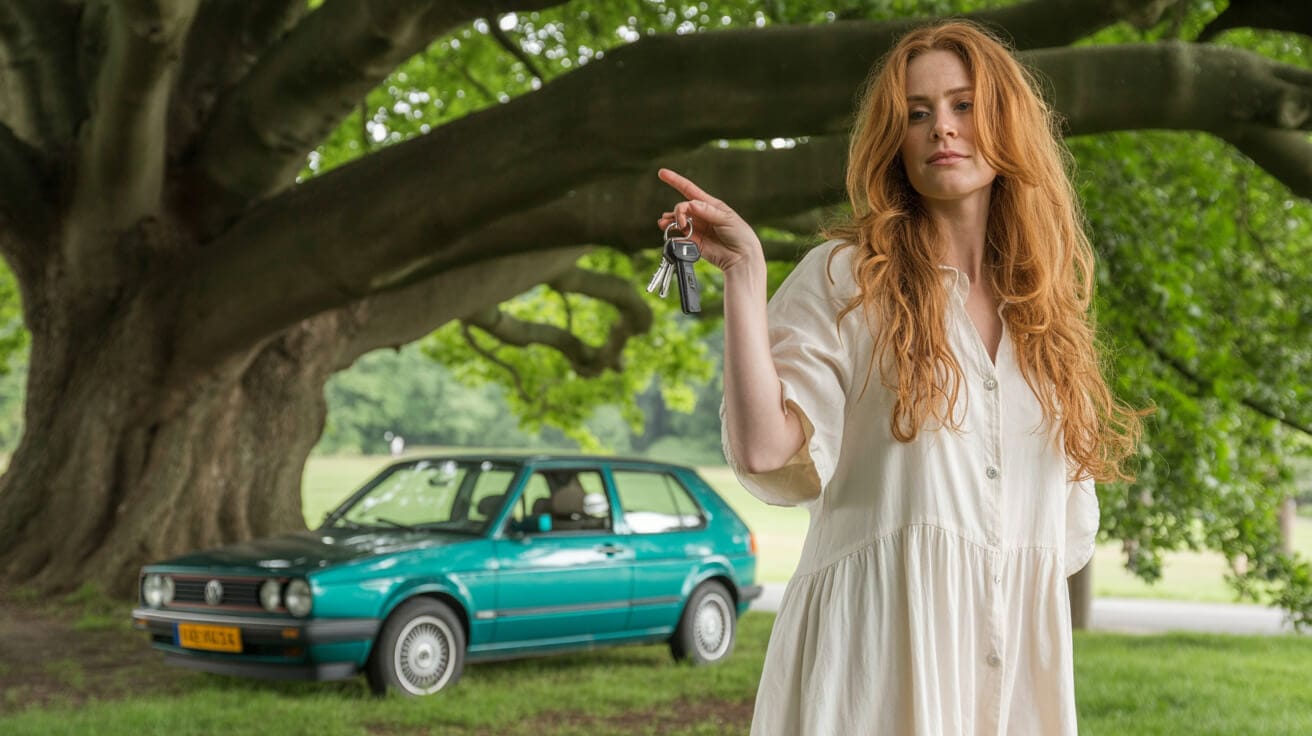
No driver expects to lose all their keys or have their fob stop working. Whether you’re facing a total lockout, a non-start, or a key that only works some of the time, your response shapes the cost and time to resolve it.
The difference between a crisis and a routine call-out is preparation, not luck.
Frequent scenarios:
- All keys lost: After quick ID verification, a skilled locksmith can create and programme new keys on site, often in under an hour. Dealers may require recovery/tow and several days.
- Spare key won’t start: A spare without a chip, or an unprogrammed key, will open doors but won’t defeat the immobiliser. Only full programming (with digital log) resolves this.
- Remote unlocks, engine won’t start: It may not be the battery; if the car doesn’t sense the chip, only a scan tool finds the issue.
- Privacy and accountability: All your data is handled under tight data privacy controls (encrypted retention, owner-only access).
Every reputable locksmith starts with owner ID, checks vehicle details, runs diagnostics, and will avoid destructive entry. Every step is traced and photographed for your audit trail.
What Documentation Should You Walk Away With?
You want:
- Photos: before, during, and after service
- Digital event log: which device, for which car, by whom, when
- Demonstration: every new key starts the car and triggers the alarm
Keep all logs and proof for insurance, warranty, or a future sale.
What Does a Locksmith Do During Roadside Key Programming?
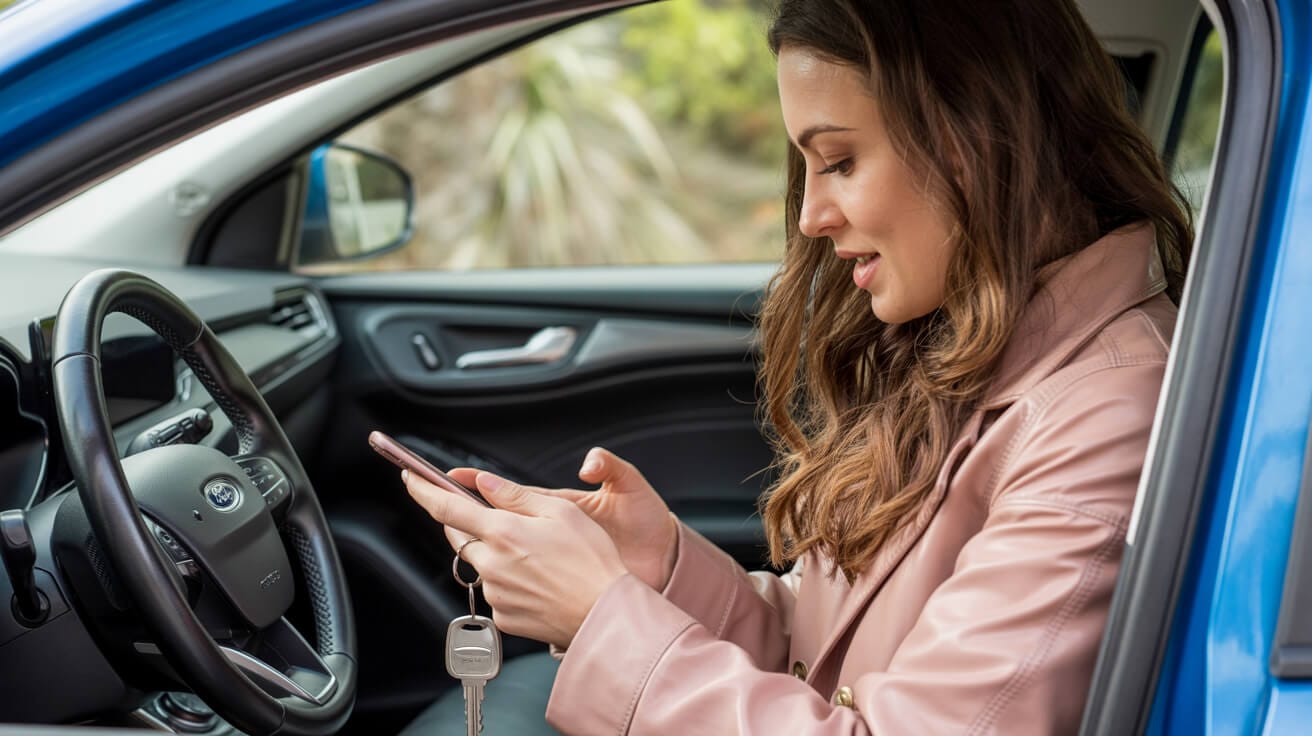
Professional car key programming is tightly sequenced for your protection and the car’s security. Here’s how a locksmith like Autolocks Ltd turns your lockout into problem solved—safely, and with full documentation:
Step 1: Verify You Are the Owner
Programming cannot begin without you presenting valid ID and proof of vehicle ownership (V5C or digital equivalent). No exceptions.
Step 2: Connect to the Car’s Diagnostic Port
An authorised scan tool plugs into the OBD-II port—no dashboards removed, no quick hacks.
Step 3: Catalogue Existing Keys and Match New Key
The system reads current key IDs; your new chip is programmed as an authorised key. Each action, operator, and device is logged.
Step 4: Test All Functions
Before handing you the keys, the technician demonstrates lock, unlock, and starting to prove functionality.
Step 5: Handover and Documentation
You receive a digital log, demonstration photos, and often a PDF event trail for your records.
Having paperwork for every step is what separates a pro from a pretender.
What Happens with Your Private Data?
Your data and key information are encrypted and accessed only as needed. Retention is short and access is limited to those certifying the service. If needed later, retrieving your records is straightforward.
What Security and Data Standards Protect You When Programming Keys?
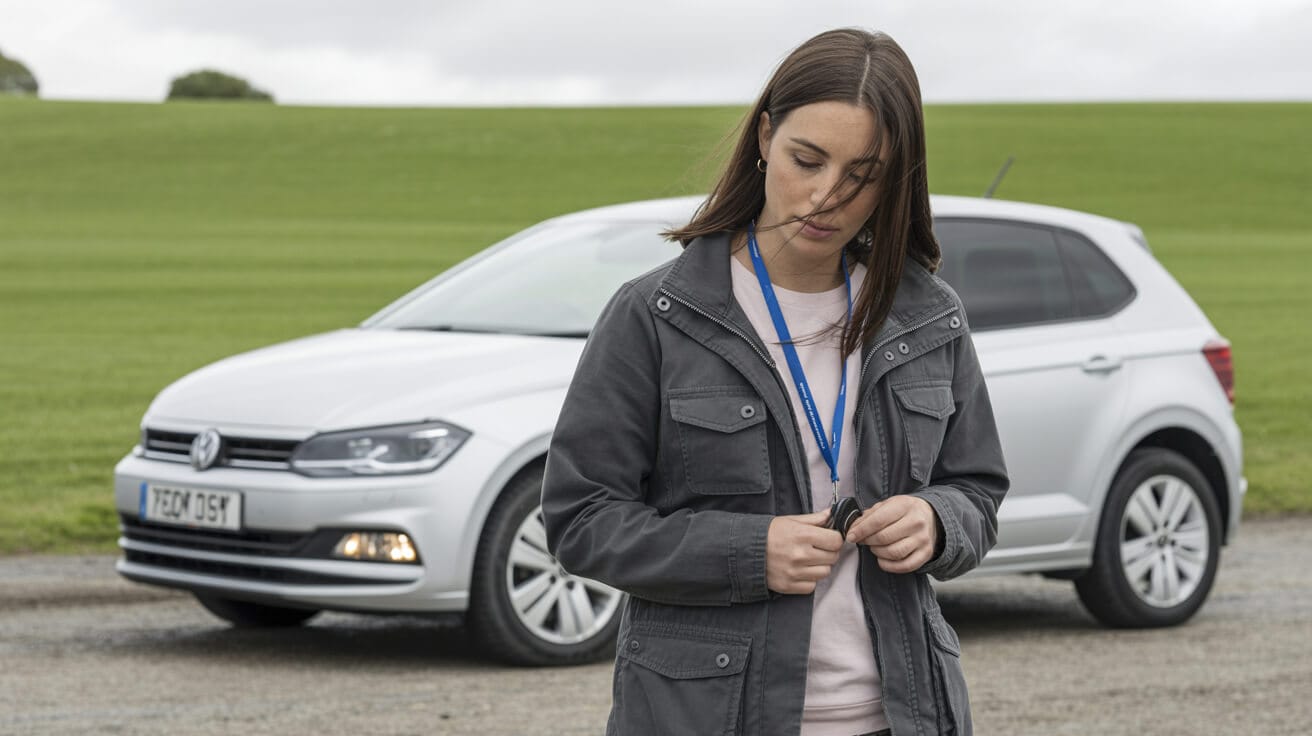
Programming a car key in the UK isn’t just technical—it sits inside stringent safety, privacy, and data compliance requirements. Reputable services operate within these legal and industry standards as a matter of course.
Secure key programming is about more than getting you going—it means everything is traceable and you’re never left in the dark.
Why Consent and Signed Proof Are Non-Negotiable?
Before a key is programmed, you sign off ownership and data use. This dual consent is vital: it keeps your data safe and blocks unauthorised programming—no signature, no service.
What Should Your Paperwork Say?
Expect:
- A signed programming log listing which keys were programmed, when, and by whom
- Warranty coverage terms and compliance summary (data held securely, job logged)
- Assurance all data handling meets ISO 26262 (safety) and ISO/SAE 21434 (cybersecurity) protocols
If an issue ever arises—insurance claim, dispute, error—your log is your shield.
How Are Disputes Handled?
With digital records, every action is verifiable. If a mistake’s made, the full audit trail helps identify and fix errors—quickly and openly.
What Trust Signals Separate a Reputable Locksmith From the Rest?
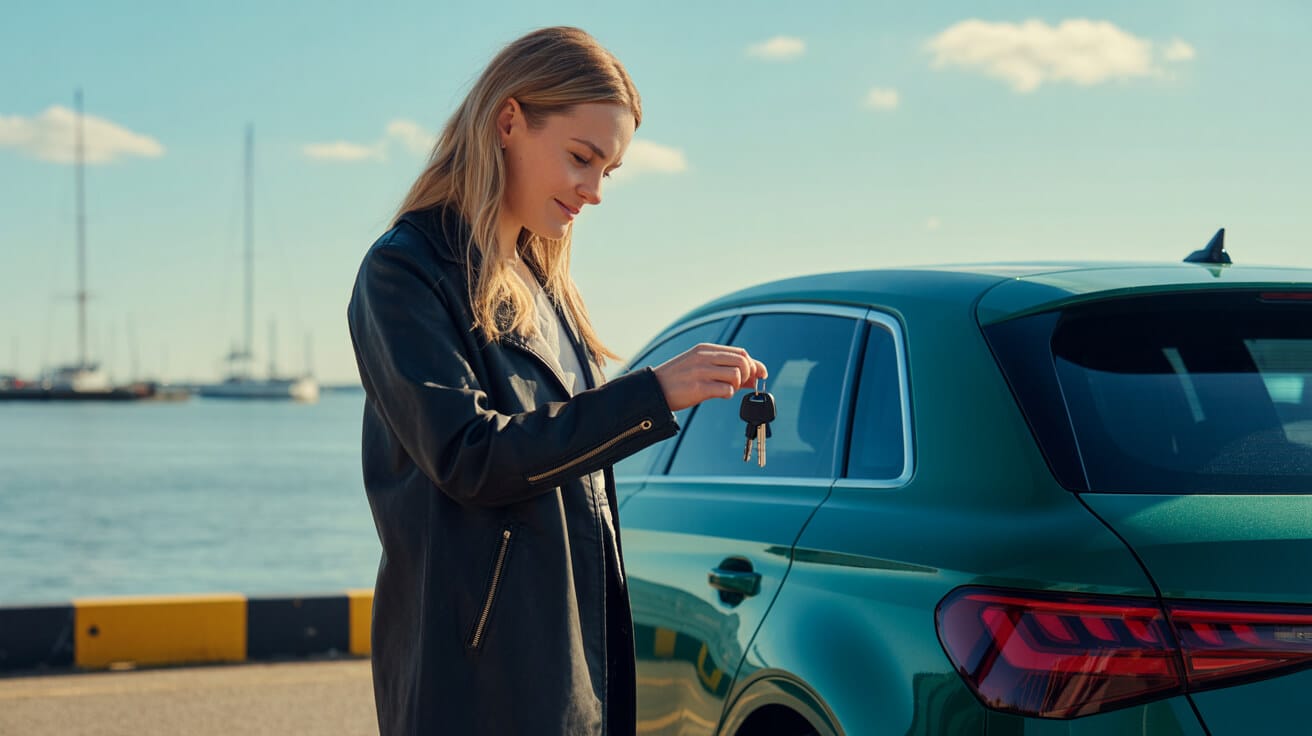
Your car’s security starts with who holds your keys. Reputable locksmiths build trust with visible credentials, detailed records, and open processes. Glossy ads mean nothing without evidence.
The right locksmith leaves more proof behind than any review ever could.
Must-Have Proof Points:
- Certification: Make sure your locksmith belongs to registered trade bodies or holds valid insurance.
- Event Logs: Every programming event is tracked—ask to see it.
- Photographic Records: Each step should be documented with images.
- Clear Timelines: ETA, scope, and cost explained and written down before work.
- Transparent Warranty: Warranty terms should be clear, relevant, and directly tied to the work.
Red Flags:
- Paper or oral-only records
- Vagueness about data handling or process
- Services performed “too quickly” or without ID check
- Warranty unavailable or not described up front
Always request—or insist—that all steps are documented and explained in plain English.
How Are Digital Keys, Model Differences, and New Tech Changing UK Car Entry?
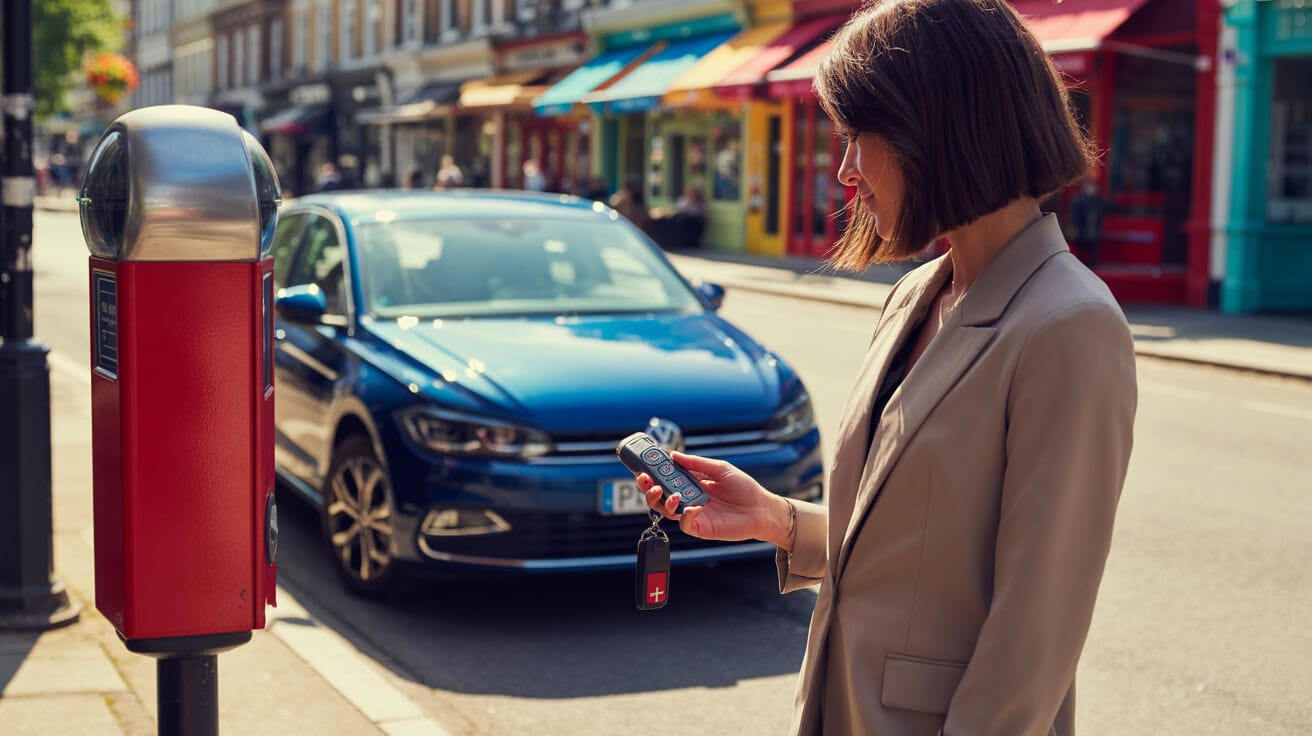
The world of car access is evolving fast. What used to be an ordinary key is now, in some cars, an app, a card, or even your phone. That means providers need specific tools and skills to support this rapid change—and you need to know what it means for access, cost, and peace of mind.
As digital keys take over, your best protection is a transparent process and a digitally logged record you can understand.
Which Brands Are “Digital Key” Ready?
Tesla, BMW, Toyota, Hyundai, and a growing number of brands now put phone-based, NFC, or app keys into UK cars. Locksmiths with digital expertise can handle most mainstream brands—always ask for a compatibility check if your car is recent or has an app-managed key.
Quick Guide: Digital Key Support Checklist
- Compatibility Check: Confirm your specific car and trim support digital key programming—don’t assume by brand alone.
- Secure Credential Update: Handover is via your official app—never share passwords or digital credentials by text or phone.
- Document the Process: Demand a digital event log (photos, PDF, or app-based proof) upon completion.
- Know When to Refer: If a locksmith cannot support your tech, they should refer you to a specialist dealer—no bluffing.
A specialist’s ability to say, “Sorry, that’s dealer-only,” is a service, not a shortcoming.
What’s New in Access Technology?
Software updates increasingly dictate who can programme a key. Many newer models can suddenly become “dealer only” after an update—even if a locksmith did the last job. Always check, and let your provider explain the state of play up front.
Why Autolocks Ltd Is Your Best Choice for Secure, Documented UK Car Key Programming
When you want your vehicle protected, your time respected, and your trust justified, Autolocks Ltd stands apart. Every job comes with digital logs tied to your car and your name, plain-English aftercare, and a documented, compliance-ready process—so you stay covered with your insurer and always have every proof you need.
When every step is photographed and every action is logged, you get peace of mind—now and in the future.
At Autolocks Ltd, you’ll get quick response, skilled diagnostics, non-destructive entry, and fair, up-front menu pricing. Whether your keys are lost, your fob is unresponsive, or you just want a backup for the rainy day, you’ll receive a full demonstration, step-by-step documentation, and a traceable event record—backed by warranties and data privacy at every stage.
Choose Autolocks Ltd if you expect visible proof, clear communication, and quick, secure access to your vehicle. If documented evidence, plain-EQ security, and seamless help matter to you and your car, our team is ready and waiting to assist.
Frequently Asked Questions
How Do Modern UK Car Keys Provide Unmatched Security—And Why Does Your Insurance Depend on Them?
Modern UK car keys combine mechanical brawn with digital brains. Each time you turn or press “start,” your key’s unique microchip and the car’s immobiliser “talk”—verifying that you, not a thief, are in control. Without this secret handshake, your engine stays silent, and so does your insurance policy in case of theft or claim.
These systems—mandated on nearly every UK vehicle built after 1995—have slashed theft rates and set a new bar for claim eligibility. The immobiliser checks for a chip-specific code, which no classic cut-key or moulded copy can fake. Major insurers now specify that claims may be denied if the vehicle was accessed or started with an unprogrammed or counterfeit key. Owners rarely realise their insurance could be invalidated by a simple oversight: using an unprogrammed spare or letting an unverified provider “have a go.”
Security isn’t just a barrier against crime—it’s the handshake that keeps your rightful claim alive.
Always verify that any new key is programmed and demonstrated to both unlock and start your car. Ask for programming records as digital logs, plus a working demo—these are your best defence against warranty or insurance headaches down the line.
Anatomy of a Secure Key
- Physical Blade: Necessary for the door, but powerless on its own.
- Transponder Chip: Makes or breaks engine start—no chip, no go.
- Remote Module / Battery: For locks and boot, but engine start remains chip-dependent.
If a spare key unlocks doors but can’t start the car, don’t drive until it’s corrected—false confidence is expensive when your claim or commute is on the line.
What Makes Transponder Keys Essential—and What Really Happens If You Cut Corners?
Transponder keys are more than mere hardware: they are the gatekeepers of your driving rights. Their embedded chips must match your vehicle’s immobiliser exactly, or the entire start chain is blocked. That means even a perfect metal duplicate without chip programming is, at best, a glorified lockpick.
If you settle for a “cheap online spare” or skip professional programming, you risk being stranded, failing an MOT, or seeing a claim denied. Insurance companies increasingly require the digital trail behind every legitimate spare. Inadequate authentication isn’t just an “it’ll do” move—it’s a liability.
If your car lets the key open, but not start, that’s your security system saving you from greater trouble.
Before you accept a new spare, ask for a side-by-side demo: it should unlock, start the engine, and its programming event should be logged to your record. This evidence isn’t paperwork—it’s peace of mind that survives even if your main keys vanish.
Three Test Points for Real vs. Fake Spares
- Unlocks?: Good start, not enough.
- Starts engine?: Non-negotiable.
- Programming evidence provided?: Insist—digital receipts now come standard with every legitimate job.
Who Should Programme Your Keys—Dealer, or Trusted Locksmith—and What Do You Risk With the Wrong Choice?
Choosing between your main dealer and an accredited locksmith like Autolocks Ltd influences not just the speed and cost of the fix, but the integrity of your service record and claim protection. Dealers are essential when digital keys or module updates are locked to OEM servers, but are often slower, further away, and usually more costly—sometimes requiring vehicle recovery.
Professional auto locksmiths cover 90%+ of cases on your driveway. They arrive same-day, prove ID, read active keys, cut and programme the right chip, and supply digital logs—plus a full demo—so you know the job is done, the records are right, and your warranty is safe.
Don’t let location dictate trust—the digital record, not the showroom, protects you in the end.
Dealer vs. Locksmith: What Actually Changes?
| Factor | Locksmith (Autolocks Ltd) | Main Dealer |
|---|---|---|
| Response Speed | 1–2 hr, UK-wide | 2–5 days, on-site |
| Cost | £150–£350 | £250–£500 |
| On-site Programming | Yes | Often no |
| Warranty + Log | Direct, transparent | Policy-bound/paper |
| Digital Proof | Always attached | Often “by request” |
For smart keys or software-locked cars, a locksmith who knows when to refer is as valuable as any main dealer—transparency is the new gold standard.
What If You Lose All Keys or Get Locked Out—What’s the Fastest, Safest Road Back?
Losing every key, or suffering a complete lockout, is a test no owner wants—but one that exposes the best (and worst) in the industry. An authentic resolution starts with identity and ownership checks before any tool touches your car. From there, your vehicle’s control modules are scanned for all active/blocklisted keys and faults—nothing is left to speculation.
True professionals like Autolocks Ltd don’t just sell you access: they rebuild your encrypted digital access chain, cut/programme/verify the right credential, and log every step—so your claim, warranty, and peace of mind are bulletproof.
Recovery is more than opening doors—it’s restoring your legitimate authority over your car.
Emergency Recovery Roadmap
- Verify and log ID + ownership: No short-cuts, ever.
- Scan and diagnose vehicle state: Find the real failure—be it the key, chip, or control module.
- On-site programme and demo: Show every function, live, on your vehicle.
- Log every event: Digital, photos, time-stamped records—yours for the future.
These logs outlast lost keys, fobs, or even insurer disputes—protecting you long after the job ends.
What Does Genuine Car Key Programming Look Like—and How Can You Tell It’s Done Right?
Proper car key programming is a measured, visible process—never guesswork, never rush. The technician connects specialised equipment via your car’s OBD-II port, audits existing credentials, and programmes new ones under security-gated access. Each action is stamped with who, what, when, and how—plus photo or PDF evidence for your insurance, fleet, or peace of mind.
If you’re handed just a key, or told “it’s done” with no record, you’ve been short-changed and possibly left at compliance risk. The best professionals always include a data audit trail, warranty provision, and real-time demo.
Steps that Don’t Lie
- ID and vehicle validation—snap, log, encrypt.
- Connect, scan, and read every module—no gaps.
- Programme the new key using authorised hardware.
- Demo full functionality in front of you: lock/unlock/start/alarm.
- Provide a PDF or digital log, tied to you and your car—never optional.
Opacity is a red flag—your best protection remains records you can actually use.
Correct programming is about future disputes as much as today’s convenience.
What’s Changing with Digital Keys, Smart Systems, and EVs—and Why Does Documentation Matter Even More?
Smart keys, app-based access, BLE/UWB, and phone-as-key tech are making their mark across Tesla, BMW, Ford and more. Each evolution widens the gap between “just let in” and “full claim protection.” Compatibility checks, update support, encryption, and stepwise logs have become critical.
Trusted locksmiths, especially Autolocks Ltd, keep pace through OEM partnerships, live training, and a tooling arsenal matched to today’s complexity. It’s not just about getting you moving; it’s about securing your future rights amid rapid system evolution.
In a digital-first world, only transparent documentation and end-to-end logs assure your continued access.
What Every Owner Should Absolutely Insist On
- Confirm your vehicle supports independent programming—especially after major updates.
- Demand a digital event log, with both steps and proof, for every new credential.
- Insist all sensitive actions (provisioning, revocation) be documented and securely stored.
- Accept honest signposting—if your job is “dealer only,” genuine professionals will tell you.
With every change in technology, your expectation for documented, compliant, and non-destructive service should only rise. Choose service that proves—not just promises—your security.

